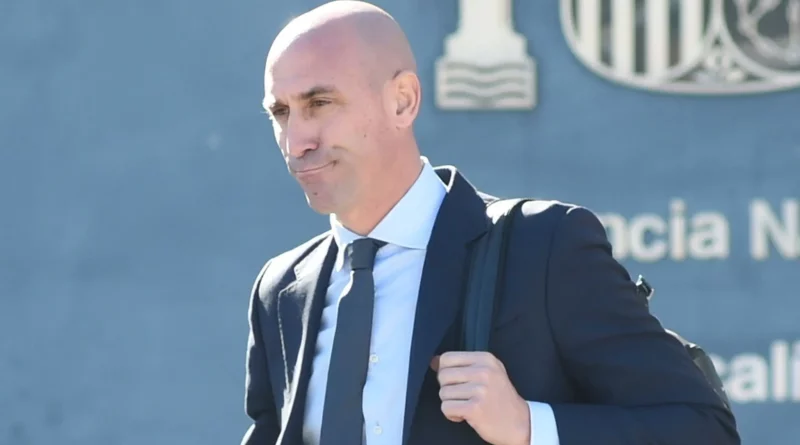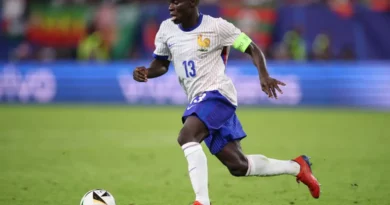Rubiales and Hermoso case and its impact on Spanish football
Few moments in recent sports history have resonated as deeply as the Rubiales and Hermoso case. Beyond the confines of stadiums, this scandal has sparked a national conversation about respect, consent, and the direction of Spanish football. When Spain’s women lifted the World Cup trophy in Sydney in 2023, few could have anticipated that the post-match celebration would lead not just to legal wrangling but to a lasting societal shift.
The moment that changed everything in Sydney
The story begins on August 20, 2023, under the glare of the global spotlight during the Women’s World Cup medal ceremony. Spanish football federation president Luis Rubiales kissed forward Jenni Hermoso on the lips, a gesture caught live on cameras and, crucially, without Hermoso’s consent. The kiss, meant perhaps as an exuberant celebration, was immediately controversial. In a social media post shortly after, Hermoso made her feelings clear: she “didn’t like” it.
What followed was a whirlwind. The Royal Spanish Football Federation (RFEF) initially issued a statement on Hermoso’s behalf, calling the kiss spontaneous and mutual. This perspective was starkly at odds with Hermoso’s own public statements and the emotional impact described later in court. Within days, Spain’s political leaders, including acting Culture and Sports Minister Miquel Iceta and Prime Minister Pedro Sanchez, condemned Rubiales’ actions as “unacceptable,” marking the beginning of a seismic shift both within football and in Spanish society.
A team draws a line and a federation in chaos
The team, fresh from reaching the pinnacle of their sport, refused to play for Spain again unless Rubiales resigned. Hermoso spoke of “continuous pressure” from the RFEF to downplay the incident, while federation staff threatened legal action against her. The coaching staff, with one key exception, resigned in protest. Coach Jorge Vilda, initially standing by Rubiales, was dismissed just over two weeks later, his legacy forever entwined with the fallout. The reverberations reached as far as Rubiales’ family—his mother staged a hunger strike, protesting the backlash against her son.
Legal battles and the court’s verdict
Formal complaints snowballed. On September 6, 2023, Hermoso filed an official grievance with the national prosecutor. FIFA quickly imposed a provisional 90-day ban on Rubiales, then, after further evidence and appeals, a three-year prohibition from any football activities. Despite a high-profile press conference where Rubiales defiantly refused to resign, the pressure became unbearable, and he stepped down in September 2023.
The road to justice was long and public. Testimonies were given, videos broadcast, and interviews dissected. Hermoso remained steadfast: she had not consented to the kiss and felt her achievements were “stained” by the act. For her courage, she became not just a symbol for women’s football, but for all those who have experienced unwanted attention, particularly in spaces where power dynamics are stark.
The moment of reckoning
On February 20, 2025, a verdict was finally delivered. The Audiencia Nacional court in Spain found Rubiales guilty of sexual assault. He was fined for 18 months, equivalent to €20 per day, and barred from approaching or communicating with Hermoso for one year. But he was acquitted on charges of coercion. The court sided with Hermoso’s unwavering testimony, granting her story “full credibility.” There was no prison term, but a line had been drawn in Spanish public life: behavior breaching another’s autonomy, even in celebratory euphoria, would be scrutinized and punished.
In the words of Hermoso herself: “After all, this will create an important precedent in a social environment in which much remains to be done … And now, it’s over.” With those words, a chapter closed, but the reverberations remain.
The role of football and the wider conversation
For many, this event exposed a culture within Spanish football that needed reckoning. As reporter Rob Harris pointed out, the case “represents a culture shift in the fact women’s football is top of the agenda in Spain.” The saturation coverage—from live court broadcasts to intense press scrums, underscored that this was about much more than a single moment of transgression. It was about misogyny, sexism, and how power can distort what should have been a day of pure joy for Spanish sport.
Players past and present, both in Spain and abroad, spoke up. England’s Lucy Bronze, herself the recipient of an unwanted gesture by Rubiales after the final, hailed Hermoso and her teammates for their courage. “They are fighting for change, not just within the court case, but change in their federation. It’s amazing,” she reflected. Bronze’s words captured a growing solidarity that went beyond borders or team affiliations.
Institutional responses and precedents
The reaction from organizational bodies was swift and decisive. FIFA’s disciplinary committee, later supported by the Court of Arbitration for Sport (CAS), deemed Rubiales’ three-year ban “reasonable and proportional.” Their official stance reiterated their “absolute commitment to respecting and protecting the integrity of all people” within the world of football.
Meanwhile, the Spanish federation found itself forced into unprecedented self-reflection. From mass staff resignations to public apologies for the “enormous damage” caused, the sense was inescapable: Spanish football had reached a crossroads. The ousting of Jorge Vilda, who months before had led Spain’s women to glory, further underscored the breadth of the transformation underway.
Personal costs and national consequences
The story of Jenni Hermoso is a reminder that victory and pain can coexist. She described how the unwanted kiss “stained one of the happiest days of my life.” Yet, despite the toll, she stood firm, not only for herself but for the generations to follow. Rubiales, once one of the most powerful figures in world football, now faces shame, legal sanction, and lasting exile from the sport he once helped govern.
The case has become a touchstone, sparking debates about accountability, gender dynamics, and the treatment of women in professional environments. It galvanized a new willingness to challenge entrenched hierarchies, not just in sport but in Spanish society at large.
What the future might hold
There are some lessons that must be learned, and some precedents that cannot be ignored. The verdict and the reactions it generated show that even in the most celebratory of moments, consent and mutual respect must stand above all else. Athletic excellence, like that displayed by Hermoso and her Spain teammates, should never come with conditions unwelcome or imposed.
Looking ahead, the impacts of the Rubiales and Hermoso case continue to ripple. For Spanish football, it means continuing to strive for a culture where players are protected, voices are heard, and actions truly do have consequences. For society, it means recognizing that sport mirrors the world, its struggles, its triumphs, and its responsibilities.




